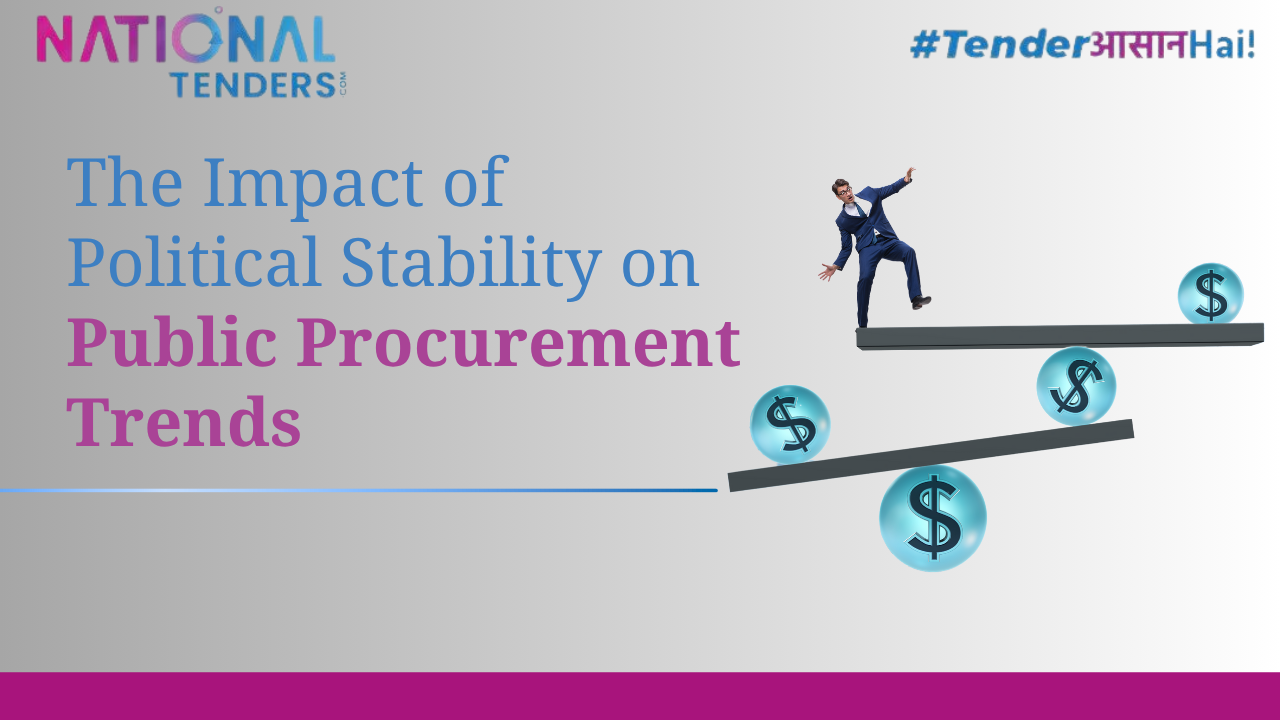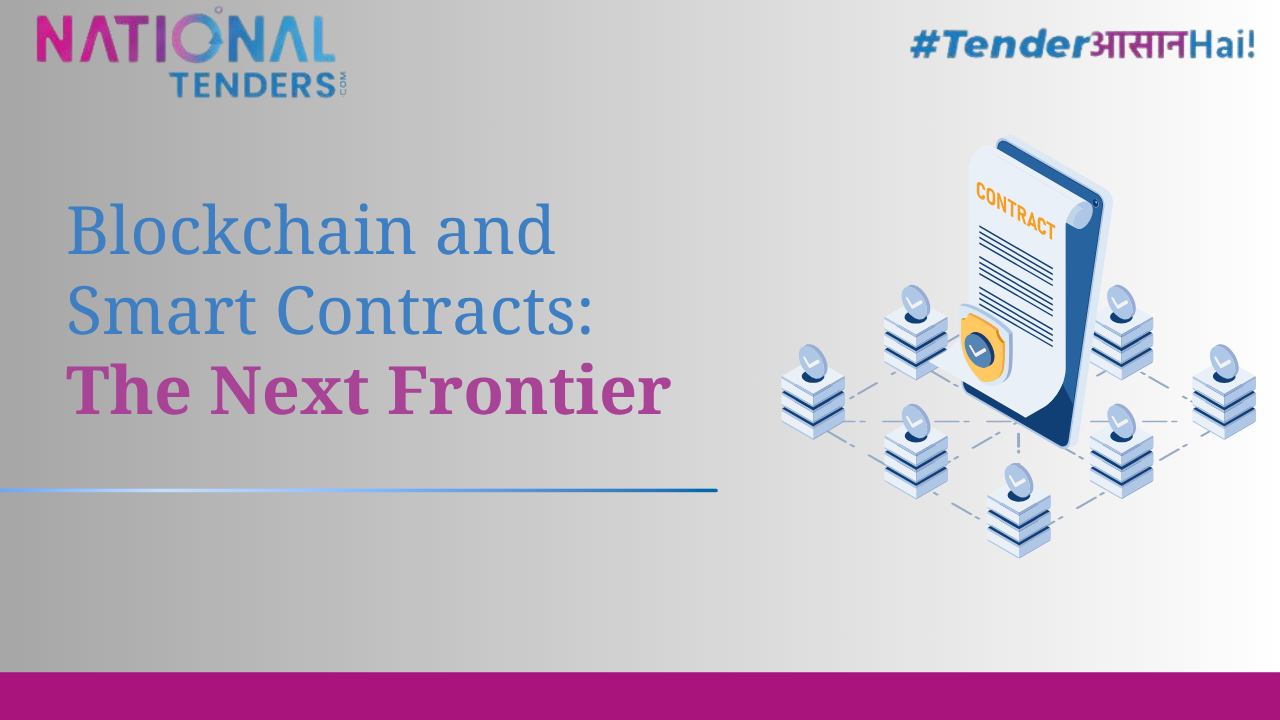- Home
- >
- Blog
OUR BLOG
A collection of stories about our people, our capabilities, our research, and the ever-changing face of our firm.

NationalTender
The Impact of Political Stability on Public Procurement Trends in India | 30 May, 2025
The Impact of Political Stability on Public Procurement Trends in India
Public procurement is a cornerstone of India’s economic development, accounting for an estimated 20–22% of the nation’s GDP. The scale and complexity of government purchases—ranging from infrastructure and defense to healthcare and technology—make the procurement process a key lever for growth, innovation, and social welfare. But underlying this vast ecosystem is a critical, often underappreciated factor: political stability. In a country as diverse and dynamic as India, the steadiness of governance profoundly shapes procurement policies, practices, and outcomes.
Political Stability: The Foundation of Procurement Confidence
Political stability refers to the continuity and predictability of government, policy, and administration. In India, this stability has been a driving force behind the expansion and modernization of public procurement.
Key Effects of Political Stability on Procurement:
- Policy Continuity: Stable governments implement long-term procurement reforms, such as the “Make in India” initiative, which spurred indigenisation and capacity building across sectors.
- Investor Confidence: Predictable governance attracts both foreign and domestic investment, ensuring fair play, transparent processes, and timely payments.
- Regulatory Evolution: Stability facilitates regular updates to procurement rules (e.g., General Financial Rules, 2017), keeping the system responsive to changing needs and global best practices.
Political Instability: Risks and Disruptions
Conversely, political instability—marked by frequent leadership changes, policy reversals, or corruption scandals—can disrupt procurement cycles and deter participation.
Case Studies:
- Karnataka: Between 2000 and 2024, frequent leadership changes led to inconsistent policies, delayed projects, and a 66.8% drop in FDI inflows.
- Tamil Nadu: High-profile corruption scandals discouraged business investment, driving companies to states with more predictable governance.
Typical Risks:
- Project Delays: Leadership uncertainty stalls approvals, disrupts timelines, and increases costs.
- Corruption and Favoritism: Instability creates opportunities for rent-seeking, weakening merit-based decisions.
- Reduced Competition: Perceived risk deters qualified suppliers, narrowing the bidder pool and increasing costs.
Political Cycles and Procurement Patterns
Electoral cycles in India significantly influence procurement trends. During election years, contract awards often surge, sometimes driven by political motives over public interest.
Implications:
- Short-Termism: Projects prioritized for political visibility may lack long-term impact.
- Accountability Gaps: Political patronage undermines transparency and efficiency.
- Market Distortion: Firms prioritize political connections over competitiveness or innovation.
The Role of Institutions and Judicial Oversight
India’s procurement framework is rooted in principles of fairness, transparency, and non-discrimination.
Key Safeguards:
- Judicial Review: Courts intervene in procurement decisions when evidence of bias or procedural impropriety arises, as reaffirmed by the Supreme Court in 2024.
- Administrative Reforms: Recent efforts to professionalize procurement aim to insulate bureaucrats from political pressure and strengthen accountability mechanisms.
Positive Outcomes of Political Stability
India’s stable political environment has attracted global supply chains, especially in sectors like apparel and technology. American buyers increasingly favor India over politically volatile countries, citing reliability and timely delivery.
Other Benefits:
- Enabled negotiation of complex free trade agreements.
- Opened procurement to international competition and innovation.
Conclusion: The Path Forward
Political stability is a critical driver of effective, transparent, and growth-oriented public procurement. As India aspires to become a $30–35 trillion economy by 2047, stable governance will play a pivotal role in shaping procurement trends.
Actionable Recommendations:
- Enhance judicial oversight to maintain accountability and fairness.
- Focus on professionalizing procurement to build a resilient, globally competitive system.
At National Tenders, we understand the complexities of public procurement in India. Whether it’s navigating political uncertainties, preparing competitive bids, or ensuring compliance with evolving regulations, our experts are here to guide you.
Unlock your potential in government contracts today!
- Consult our experts for personalized assistance.
- Stay ahead with tailored procurement alerts and updates.
- Ensure compliance and optimize your tender submissions with ease.
Contact National Tenders now and secure your next big opportunity!
 How E-Tendering is Transforming the Tender System in India
How E-Tendering is Transforming the Tender System in India Building Strong Vendor Partnerships in the Tender Ecosystem
Building Strong Vendor Partnerships in the Tender Ecosystem Unlocking Big Savings Through Smart Tender Strategies
Unlocking Big Savings Through Smart Tender Strategies How Generative AI Is Disrupting Tendering in 2025
How Generative AI Is Disrupting Tendering in 2025 Blockchain and Smart Contracts: The Next Frontier in Public Procurement
Blockchain and Smart Contracts: The Next Frontier in Public Procurement
SUBSCRIBE NOW
Kindly fill up the form